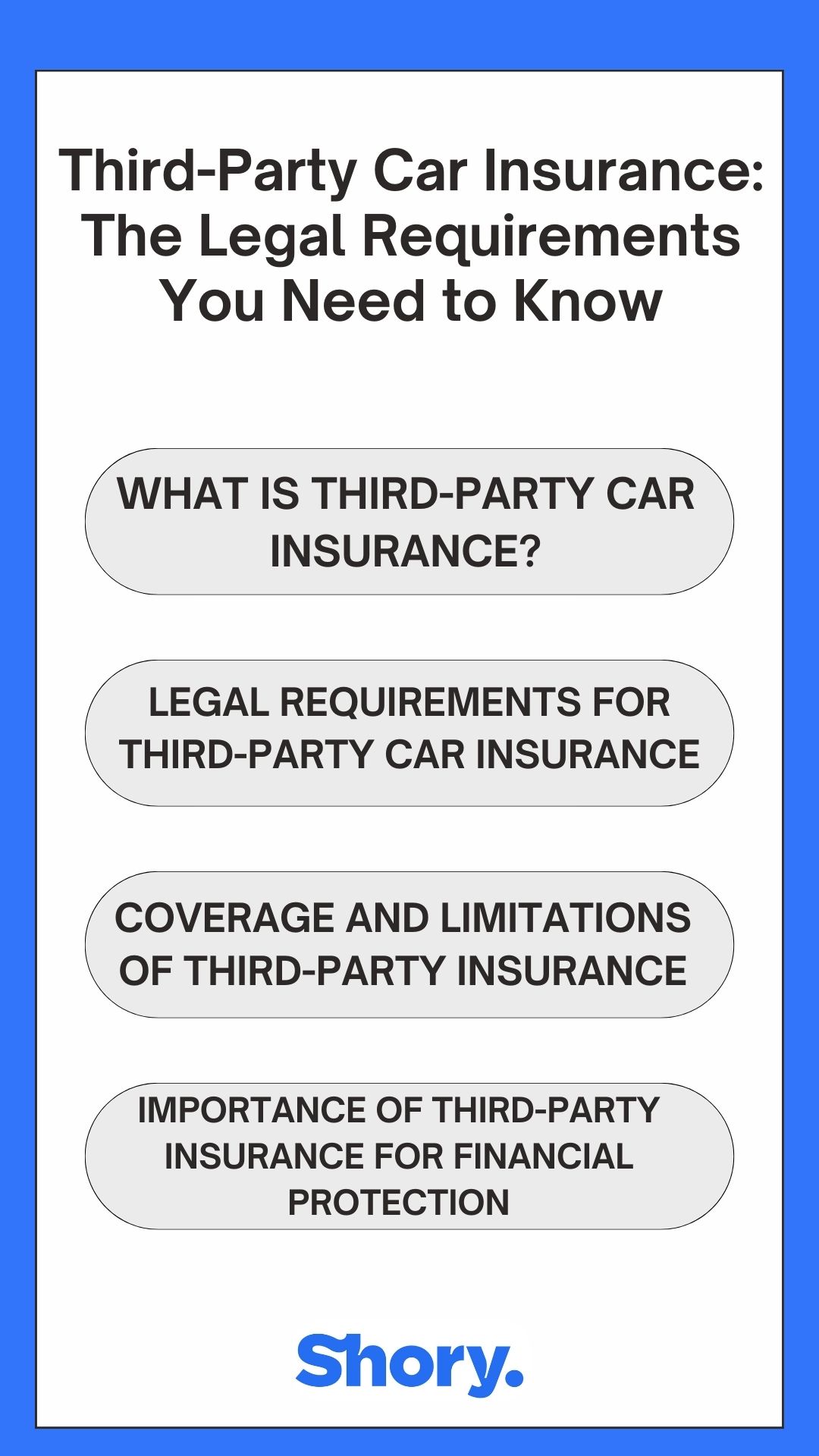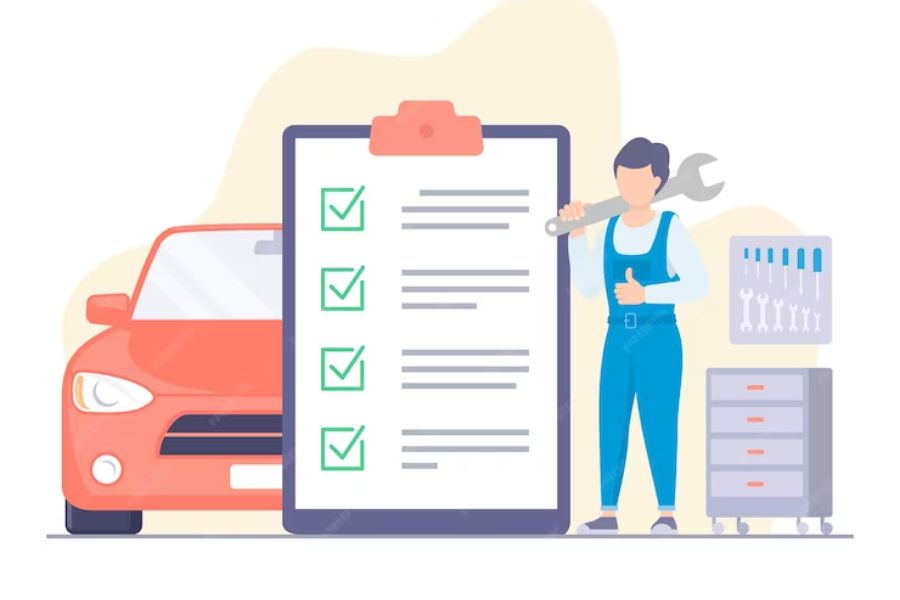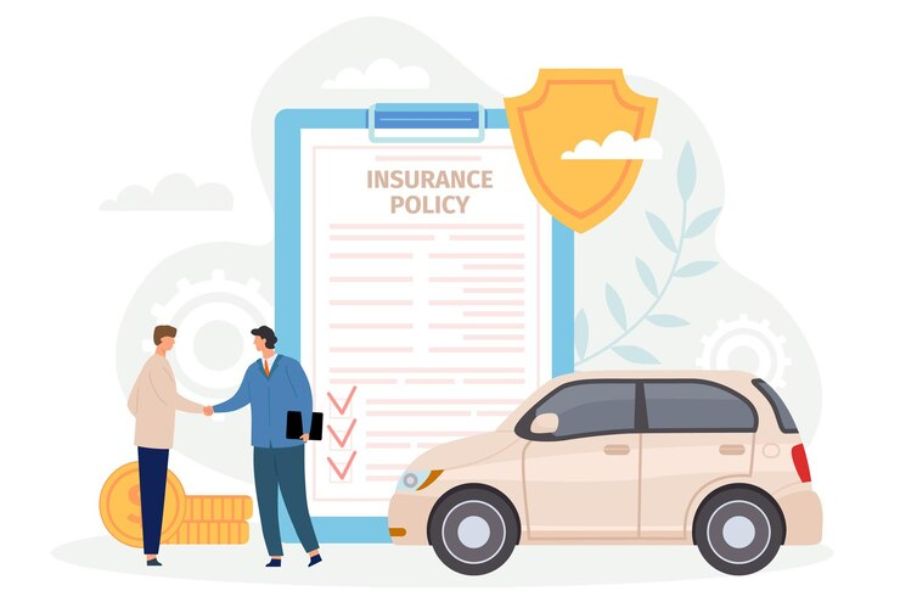 Launch apps instantly. Claim $200 credits on DigitalOcean
Launch apps instantly. Claim $200 credits on DigitalOcean
Third-Party Car Insurance: The Legal Requirements You Need to Know
Written by Stephan Rose » Updated on: March 27th, 2024


When it comes to car insurance, third-party coverage is a fundamental requirement in many jurisdictions around the world. Understanding the legal requirements surrounding third-party car insurance is essential for all drivers to ensure compliance with the law and protection in the event of an accident. In this post, we'll delve into the basics of third-party car insurance and the legal obligations you need to be aware of.
What is Third-Party Car Insurance?
Third-party car insurance is the most basic form of auto insurance coverage and is designed to provide financial protection to third parties involved in accidents caused by the insured driver. Unlike comprehensive insurance, which covers damage to your own vehicle as well, third-party insurance only covers damage to other vehicles, property, or individuals.
In essence, third-party insurance acts as a safeguard against liability for damages or injuries caused to others in an accident for which you are at fault. This type of coverage is often mandated by law in many countries to ensure that all drivers have a minimum level of financial responsibility in case of accidents.
Legal Requirements for Third-Party Car Insurance
In most jurisdictions, third-party car insurance is a legal requirement for all drivers. The specific requirements may vary from one location to another, but the underlying principle remains the same: drivers must have a minimum level of liability coverage to legally operate a vehicle on public roads.
The minimum coverage limits for third-party insurance are typically set by regulatory authorities and may vary based on factors such as the type of vehicle, the driver's history, and the jurisdiction's laws. Drivers are required to purchase third-party insurance that meets or exceeds these minimum coverage limits to comply with the law.
Failure to maintain adequate third-party insurance coverage can result in serious consequences, including fines, license suspension, and legal liability for any damages or injuries caused in an accident. As such, all drivers must familiarize themselves with the legal requirements for third-party car insurance in their jurisdiction and ensure that they have the necessary coverage in place.
Coverage and Limitations of Third-Party Insurance
While third-party car insurance provides essential protection against liability for damages and injuries caused to others, it's essential to understand its limitations. Third-party insurance does not cover damage to your vehicle or injuries sustained by you or your passengers in an accident for which you are at fault.
Additionally, the coverage provided by third-party insurance may have certain limitations, such as caps on the amount of compensation payable for damages or injuries. It's essential to review your policy carefully and understand the extent of coverage provided to ensure that you have adequate protection in the event of an accident.
Moreover, third-party insurance may not cover certain types of accidents or scenarios, such as acts of nature (e.g., floods, earthquakes) or intentional acts (e.g., vandalism). Drivers should be aware of these limitations and consider purchasing additional coverage, such as comprehensive insurance, to fill any gaps in protection.

Importance of Third-Party Insurance for Financial Protection
Despite its limitations, third-party car insurance plays a crucial role in providing financial protection to drivers and third parties in the event of accidents. Without adequate insurance coverage, drivers risk facing significant financial liabilities for damages or injuries caused to others, which can have far-reaching consequences.
Third-party insurance helps mitigate these risks by providing coverage for legal costs, property damage, and medical expenses incurred by third parties in accidents for which the insured driver is at fault. This not only protects drivers from financial ruin but also ensures that victims receive the compensation they need to recover from their losses.
Furthermore, third-party insurance promotes safer driving behavior by encouraging drivers to exercise caution and responsibility behind the wheel. Knowing that they are financially responsible for any damages or injuries they cause in accidents, drivers are incentivized to drive more defensively and minimize the risk of collisions.
In conclusion, third-party car insurance is a legal requirement in many jurisdictions and serves as a vital form of financial protection for drivers and third parties alike. By understanding the legal requirements and limitations of third-party insurance, drivers can ensure compliance with the law and safeguard themselves against the financial consequences of accidents.
Copyright © 2024 IndiBlogHub.com Hosted on Digital Ocean










Post a Comment
To leave a comment, please Login or Register